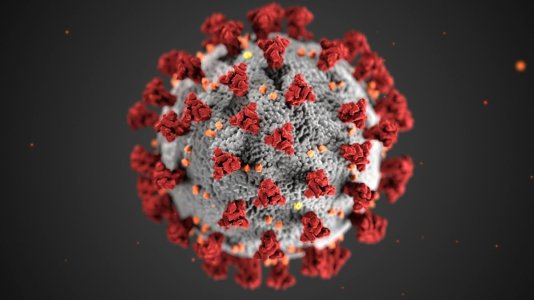Could a surprising infection double your chances of a heart attack? Find out!
By
Aubrey Razon
- Replies 0
A groundbreaking study has unveiled concerning health risks that could greatly impact older adults.
Researchers have found an unexpected link between a common illness and a higher risk of serious heart issues. Find out if you are affected!
The study found that the risk of heart attack, stroke, and death remained elevated regardless of age, sex, or pre-existing cardiac risk factors.
This suggests that the virus can leave a lasting imprint on our cardiovascular system.
One of the more intriguing findings of the study is the role of blood type in the risk of post-COVID cardiovascular events.
Dr. Gerhard Albrecht, MD, medical director of cardiology at Bayer, pointed out that individuals with blood types A, B, and AB are at a higher risk compared to those with type O.
This could be due to genetic factors that influence the body's response to the virus, particularly concerning thrombotic events, which are essentially blood clots that can lead to heart attacks or strokes.
Dr. Hazen emphasizes that the severity of the COVID-19 infection correlates with the risk of subsequent cardiac issues.
Dr. Danielle Belardo, MD, a spokesperson for Bayer, adds that vaccination can reduce the risk of stroke and heart attack, especially after a breakthrough infection, although more research is needed to fully understand the long-term benefits.
They note that those in poor cardiac health are more severely affected by COVID-19, and the more serious the infection, the greater the risk of future cardiovascular problems.
Whether it's annual visits to your primary care provider or more frequent consultations with a cardiologist if you're at higher risk, staying proactive about your heart health is key.
As winter approaches and we spend more time indoors, the likelihood of contracting illnesses like COVID-19 increases.
It's essential to take steps to minimize your risk, not only to prevent the immediate effects of the virus but also to protect your heart in the long run.
If you haven't already, consider getting vaccinated or receiving your booster shot as a critical step in protecting your heart health.
And remember, maintaining a heart-healthy lifestyle and keeping up with medical check-ups can make all the difference in managing your risk of cardiovascular events.
 Have you or someone you know been affected by COVID-19 in a way that impacted heart health? What measures are you taking to protect yourself during these times? Share your experiences and advice in the comments below.
Have you or someone you know been affected by COVID-19 in a way that impacted heart health? What measures are you taking to protect yourself during these times? Share your experiences and advice in the comments below.
Researchers have found an unexpected link between a common illness and a higher risk of serious heart issues. Find out if you are affected!
The Connection Between COVID-19 and Heart Health
The research team at Cleveland Clinic, led by Dr. Stanley Hazen, MD, PhD, has shed light on the long-term effects of COVID-19, which seem to persist even three years after recovery.The study found that the risk of heart attack, stroke, and death remained elevated regardless of age, sex, or pre-existing cardiac risk factors.
This suggests that the virus can leave a lasting imprint on our cardiovascular system.
One of the more intriguing findings of the study is the role of blood type in the risk of post-COVID cardiovascular events.
Dr. Gerhard Albrecht, MD, medical director of cardiology at Bayer, pointed out that individuals with blood types A, B, and AB are at a higher risk compared to those with type O.
This could be due to genetic factors that influence the body's response to the virus, particularly concerning thrombotic events, which are essentially blood clots that can lead to heart attacks or strokes.
Protecting Your Heart Health From COVID-19
Given these findings, what steps can we take to safeguard our heart health against the backdrop of COVID-19? Here are some cardiologist-approved tips:Get Vaccinated and Boosted
The first line of defense is to keep up to date with COVID-19 vaccinations.Dr. Hazen emphasizes that the severity of the COVID-19 infection correlates with the risk of subsequent cardiac issues.
Dr. Danielle Belardo, MD, a spokesperson for Bayer, adds that vaccination can reduce the risk of stroke and heart attack, especially after a breakthrough infection, although more research is needed to fully understand the long-term benefits.
Maintain Heart-Healthy Habits
Both Dr. Hazen and Dr. Albrecht stress the importance of a heart-healthy lifestyle. This includes a balanced diet, regular exercise, and stress management.They note that those in poor cardiac health are more severely affected by COVID-19, and the more serious the infection, the greater the risk of future cardiovascular problems.
Keep Up With Your Check-Ups
Regular cardiovascular check-ups and discussions with healthcare providers about preventive measures are crucial.Whether it's annual visits to your primary care provider or more frequent consultations with a cardiologist if you're at higher risk, staying proactive about your heart health is key.
As winter approaches and we spend more time indoors, the likelihood of contracting illnesses like COVID-19 increases.
It's essential to take steps to minimize your risk, not only to prevent the immediate effects of the virus but also to protect your heart in the long run.
If you haven't already, consider getting vaccinated or receiving your booster shot as a critical step in protecting your heart health.
And remember, maintaining a heart-healthy lifestyle and keeping up with medical check-ups can make all the difference in managing your risk of cardiovascular events.
Key Takeaways
- New research indicates that contracting COVID-19 can double the risk of experiencing major adverse cardiovascular events, including heart attack, stroke, or even death.
- The risk persists for up to three years after infection and affects individuals regardless of age, sex, or existing cardiac disease risk factors.
- Blood types A, B, and AB are associated with a greater risk of adverse cardiovascular events post-COVID compared to blood type O.
- To protect heart health from the impacts of COVID-19, it is recommended to get vaccinated and boosted, maintain heart-healthy habits, and keep up with regular cardiovascular check-ups.







